We're Not In Iowa Anymore. Caitlin Clark's New Reality
She was the biggest star in women's college basketball three months ago. The WNBA has been a rude awakening.
Once upon a time, Caitlin Clark was a national feel good story. The University of Iowa women's basketball star was setting new scoring records, her games were breaking attendance records, and her basketball prowess and charisma were inspiring little girls (and little boys) and bringing unparalleled and overdue appreciation not just to women's college basketball but women's sports generally.
Once upon a time was just this past winter. To paraphrase the old Dinah Washington song, what a difference three months makes.
Caitlin Clark in happier times, playing for the University of Iowa, photo credit: MGoBlog
Clark is now playing in the WNBA with the Indiana Fever. The transition from college superstar to WNBA rookie has not been smooth or easy, and it has played out under a very large microscope. Clark has struggled at times against tougher competition at the pro level. A hard foul that she took a couple of weeks ago has provoked discussion and argument that go beyond sports, touching on issues of race, misogyny and sexuality in America. Her exclusion from the U.S. Olympics women's basketball team sparked outrage among some. Even her salary - paltry by professional sports standards - has been a subject of controversy.
"Caitlin Clark's arrival in the WNBA has set off a firestorm of chatter, discourse, and debate the likes of which we've never really seen in sports," wrote Sean Gregory in Time magazine.
HER PLAY
I went to see the Fever play the New York Liberty the first weekend in June. The crowd was so large it was backed up outside the Barclay Center in Brooklyn and people were still trickling in after the game had started. A security guard outside remarked, "I've never seen anything like this."
Crowd entering Barclay Arena in Brooklyn for New York Liberty-Indiana Fever game on June 2nd
The game drew over 17,000 fans, only a handful fewer than the Fever's first game against the Liberty three weeks earlier. So far, the Liberty, a very good team, is averaging just over 7,800 fans per game. Already, several WNBA teams have moved their home games against the Fever, a pretty mediocre team, to larger venues. Overall WNBA attendance is up 17 percent over last season. More than half the WNBA games in the first month of this season were sellouts. WNBA television ratings have tripled since last year. It's not all because of Caitlin Clark, but it's also more than coincidence.
Near sellout at June 2nd New York Liberty-Indiana Fever game, June 2nd. WNBA teams have moved their home games vs. the Fever to larger arenas to accommodate demand
The game I attended was a rout. The Liberty took a commanding lead even before I was seated and cruised to a 104-68 victory. Clark was bottled up by defenders and made just one of ten shots. She finished with 3 points. It was the fewest points she has scored in her rookie season or, for that matter, ever as a college player. Five days later, Clark scored 30 points, the most she's scored as a pro. It's been that kind of season.
Back in April, WNBA veteran, Diana Taurasi of the Phoenix Mercury, said about Clark, "Reality is coming. You look superhuman playing against 18-year-olds, but you're going to come play with some grown women that have been playing professional basketball for a long time."
Veteran WNBA star Diana Taurasi predicted Clark’s tough start in pro basketball, photo credit: rwoan
THE FOUL
When Indiana played the Chicago Sky at the end of May, Clark was standing under the Fire's basket awaiting an inbound pass. Chennedy Carter threw her shoulder into Clark, who was looking the other way, knocking Clark to the floor. It was blatant and it was intentional.
Carter was assessed with a foul later upgraded to a flagrant foul. Video later showed her Chicago teammate Angel Reese, the Black former LSU star and Clark's college rival, seemingly celebrating the hit. Yesterday [Sunday, June 16], in a rematch between the two teams, it was Reese who was charged with a flagrant foul for hitting Clark in the head with her forearm as Clark drove to the basket.]
Clark’s fierce rivalry with Angel Reese has continued from college to the WNBA, photo credit: John Mac
Why did Carter do it? Only she knows. After the game, she declined to address the matter (though he posted on social media, "Besides 3-point shooting, what else does she bring to the table, man?" It was followed by the laughing emoji.) Carter apparently has a reputation for rough play.
For her part, Clark was fairly stoic.
"It was not a basketball play," she said. "But gotta play through it."
Afterward, some commentators saw it as way out of line. The Chicago Tribune editorialized hyperbolically that it was an "assault." Others said it's standard rookie hazing. Still others saw it as a Black player taking out a white player out of racial animus. It's hard for me not to see that race played a role in the incident. The WNBA is predominantly Black. It's easy to imagine a Black player resenting the lavish attention (and endorsement riches) this white "kid," an unproven raw rookie, is getting. I've read that in a league with many gay players, there's similar annoyance over a straight player coming into the league as a pre-anointed star. Personally, I lean toward giving the rookie her comeuppance as the biggest factor. In pro basketball, both male and female leagues, riding a newcomer hard is almost a rite of passage.
In 1985, a highly touted Chicago Bulls rookie played in the All-Star game. The veteran players on the opposing team guarded him aggressively, which isn't normally done in an All-Star game, which is normally an offense exhibition to delight the fans (the 2024 NBA All-Star game final score was 211-186). But in that 1985 game, even the rookie's teammates appeared to scorn him, seeming to deliberately freeze him out by not passing him the ball. The rookie, who scored 7 points, was flummoxed.
Several years later, when he was an established star, he recalled, "I didn't understand exactly what was going on. I didn't understand the reasoning. I always felt that I was lowest on the totem pole and had to work my way up... But I finally figured out as I got older that natural jealousy is part of professional sports or any job."
The rookie was, of course, Michael Jordan.
THE OLYMPICS SNUB
Soon after The Foul Heard Round The World, Clark was embroiled in yet another controversy, this time over Team USA's decision to not select her for the 12-member American women's basketball team that will compete this summer at the Paris Games. Some saw it as an outrageous, indefensible snub to exclude the biggest name in the women's sport. Others saw it was utterly reasonable.
"The committee focused on selecting the best team. It's hard to quibble with the star-powered players they picked," wrote Ben Pickman in Time magazine. "Find a name to swap Clark for if the focus is the scoreboard. Pretty tough."
Christine Brennan of USA Today, who I interviewed many times for sports stories that I reported at ABC News and is one of the keenest observers of sports, demurred.
"She would catapult U.S. women's basketball to a place it so richly has deserved but has never attained," Brennan wrote.
Aside from her marketing value, Brennan noted that Clark's 15.6 points per game average was 16th in the WNBA, which is more than Alyssa Thomas (12.8 ppg) or Chelsea Gray, who is only now returning after being out all season with an injury, both of whom were picked for the Olympic team. Clark, a dazzling passer, is fourth in the WNBA in assists per game.
Clark's reaction to not making the team was again restrained.
"Honest, no disappointment," she said. "Hopefully one day I can be there. I think it's just more motivation."
Brennan reported that her sources told her one reason Clark wasn't chosen was concern that it would have been a crushing disappointment to her legions of fans if she were put on the team and then didn't see much playing time, which surely would have been the case. While there's a reasonable case to be made that she was edged out by 12 more experienced and deserving players, keeping her off the team because it wouldn't upset Clark's fans would be a lame excuse. Still, there will be another Olympics. Clark will get her chance.
Brittney Griner will play on the U.S. Olympic women’s basketball team. Caitlin Clark will not, photo credit: BDZ Sports
HER SALARY
Under Clark's contract with the Indiana Fire, she will make $76,735 this season. For perspective, Pascal Siakam, the highest paid player on the NBA Indiana Pacers, earns $467,901 per regular season game.
Okay, the NBA has been around a lot longer than the WNBA and is far more established. The NBA and its teams (which play twice as many games a season as the WNBA teams) make exponentially more money from television rights, marketing deals and ticket revenue. Clark is making what the WNBA has set as the league base salary for a top rookie. It's theoretically non-negotiable. The WNBA has pointed out that Clark stands to make as much as $500,000 through team marketing revenue and potential playoff bonuses. She also earns in the eight figures through endorsements, such as Nike which pays her $28 million. Still, to me, something seems wrong with this picture.
Sabrina Merchant, who covers women's basketball, called Clark's salary a "pittance," and catalogued the many minor sports that pay as well or better, including bowling, surfing, bull riding and some of the top professional pickleball. Even the top paid NBA mascots make more, ranging from Hugo the Horney (Charlotte Hornets) who gets $100,000 a year to Rocky the Mountain Lion, the NBA Denver Nuggets mascot, who rakes in $625,000 per annum.
In a New York Times op/ed piece, Pay Caitlin Clark What She's Worth, Joshua Mendelsohn, an attorney and author of The Cap: How Larry Fleisher and David Stern Built the Modern NBA, said the WNBA could and should unilaterally authorize the Fire to pay Clark more in recognition of her value to the league.
"Handing out eye-catching salaries to star players has been a long been a tactic by rising sports leagues seeking to establish themselves and their players. And it usually works," he wrote, citing the old American Basketball Association, American Football League and Major League Soccer as examples.
Even if they could do that, I don't think it is a very good idea. It seems a little like a rising tide lifting just one boat. In any case, it is not going to happen. Clark will play out her $338,050 five-year contract and by the time it expires in 2029, I predict that the WNBA will have grown enormously in popularity and financially. Not just because of Clark, but because fans will have discovered what I discovered only last year: it's a great product. By then, the league will have expanded (to San Francisco next year and an additional three teams conceivably soon thereafter). TV ratings, the mother's milk of all sports, will have increased, putting the WNBA in a position to pay everyone a lot more money. In the words of the old Sam Cooke song, a change is gonna come. In fact, it's already started in no small part - fair or unfair - because Caitlin Clark.

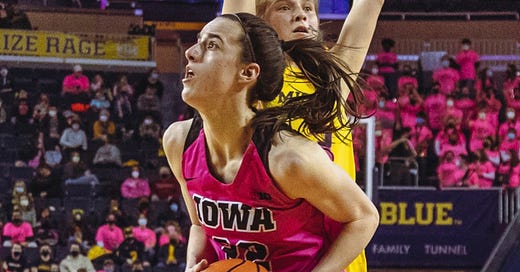



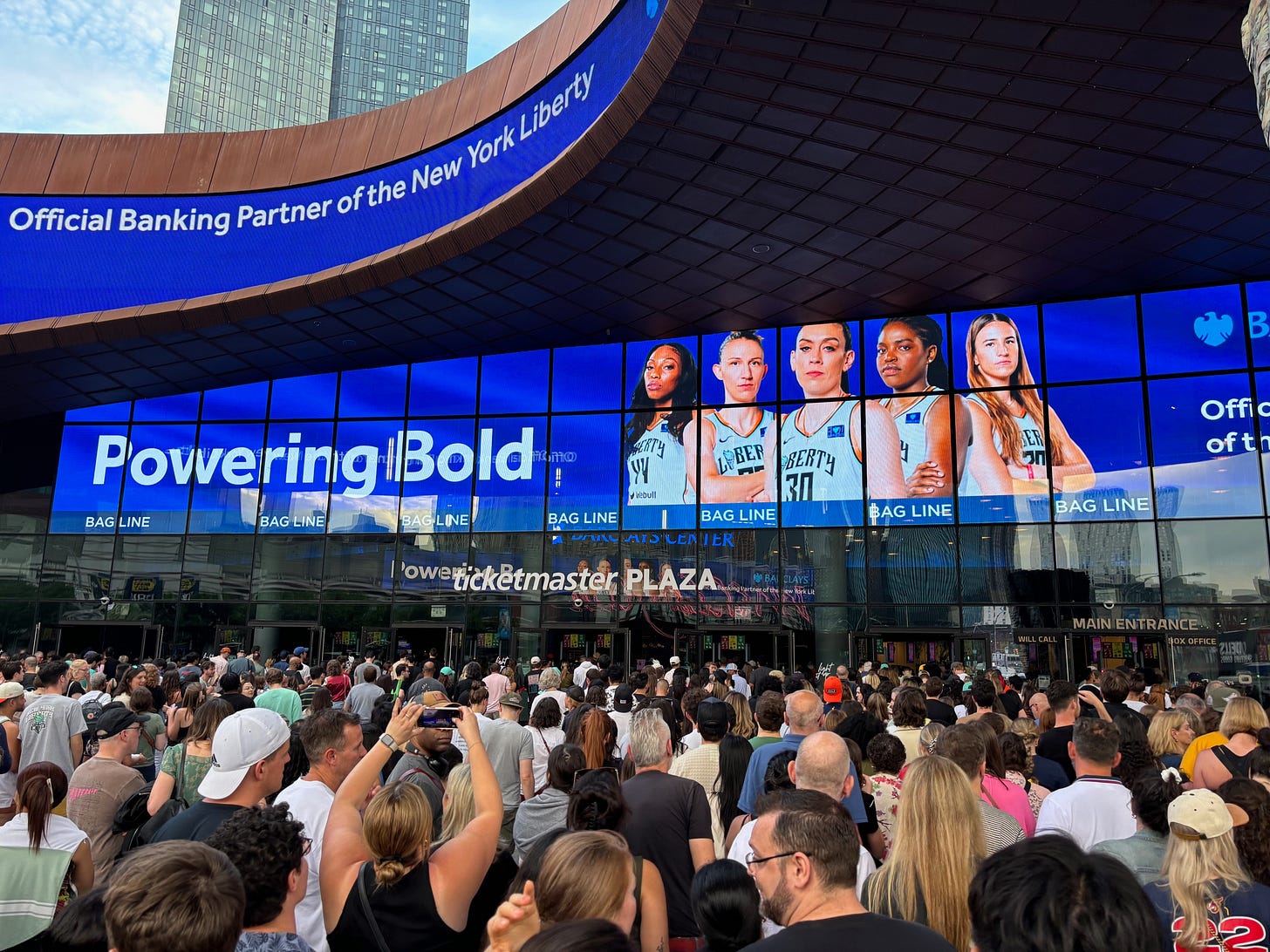
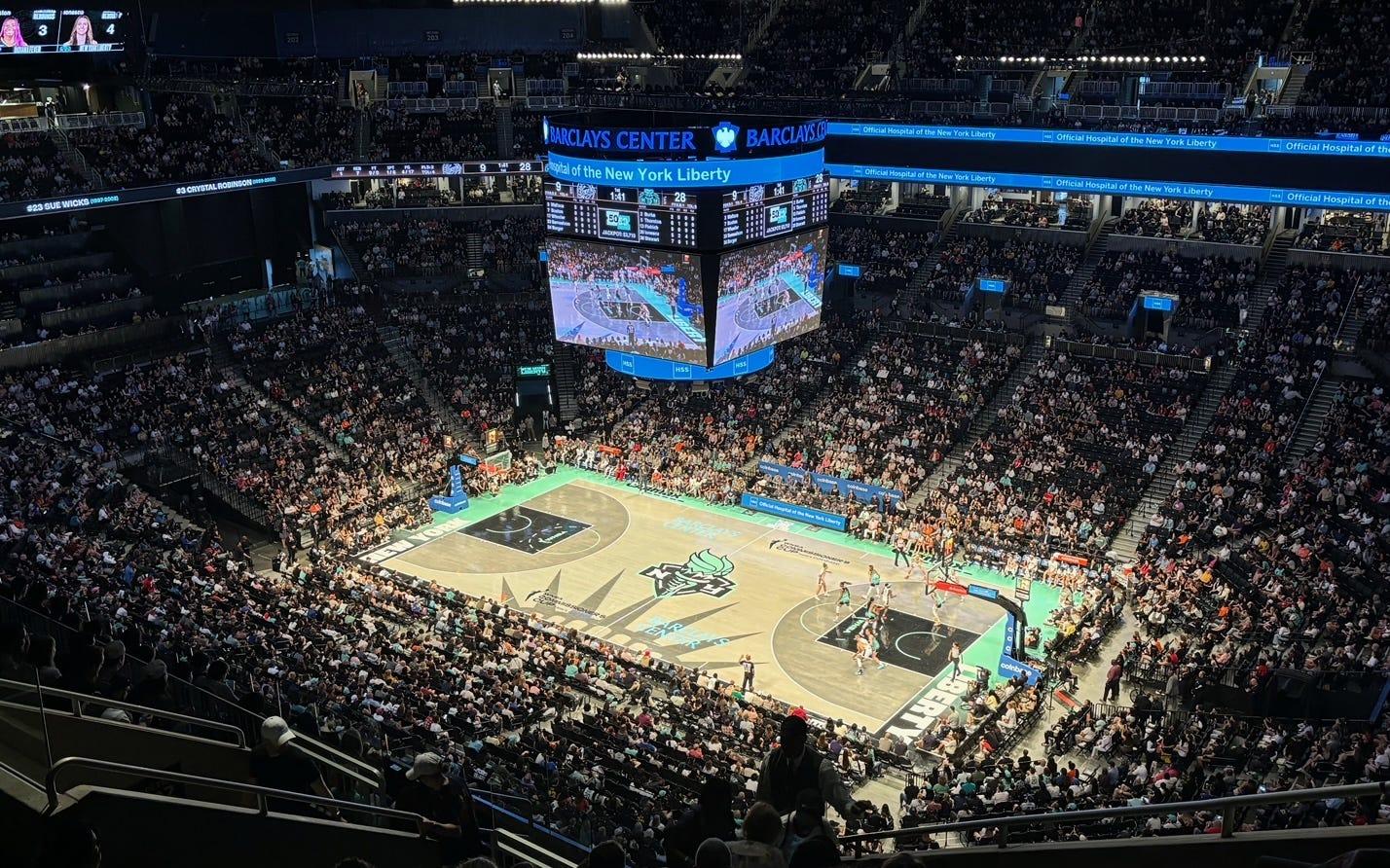
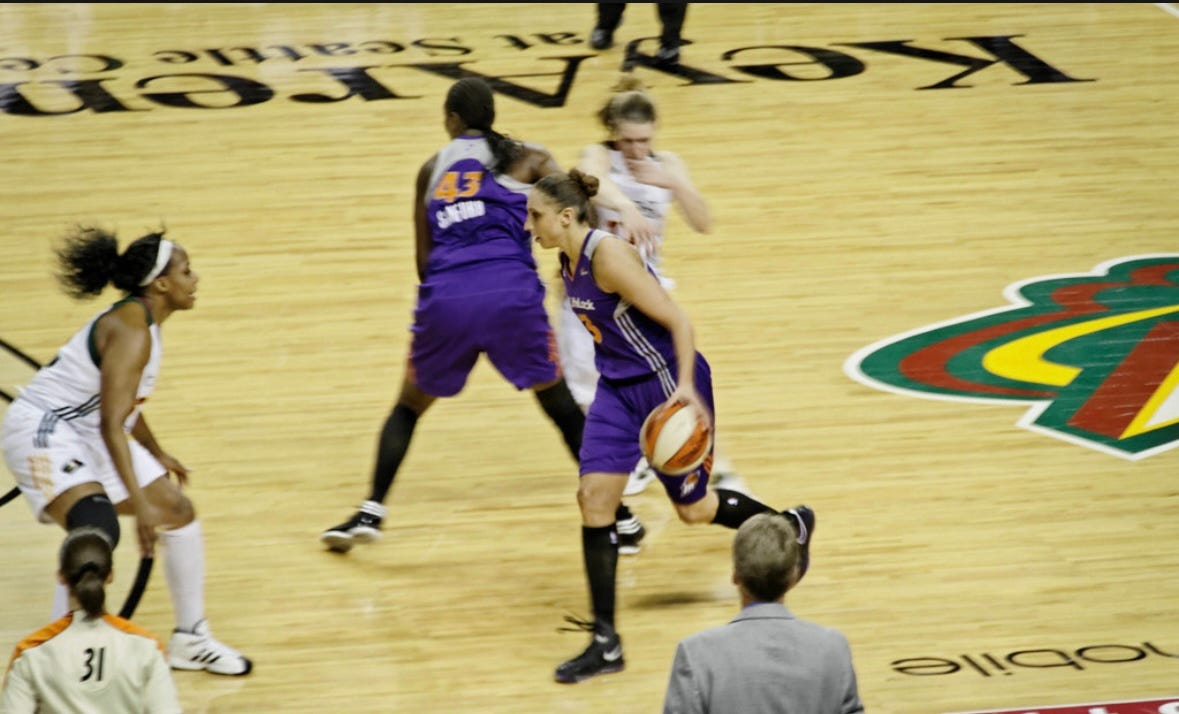
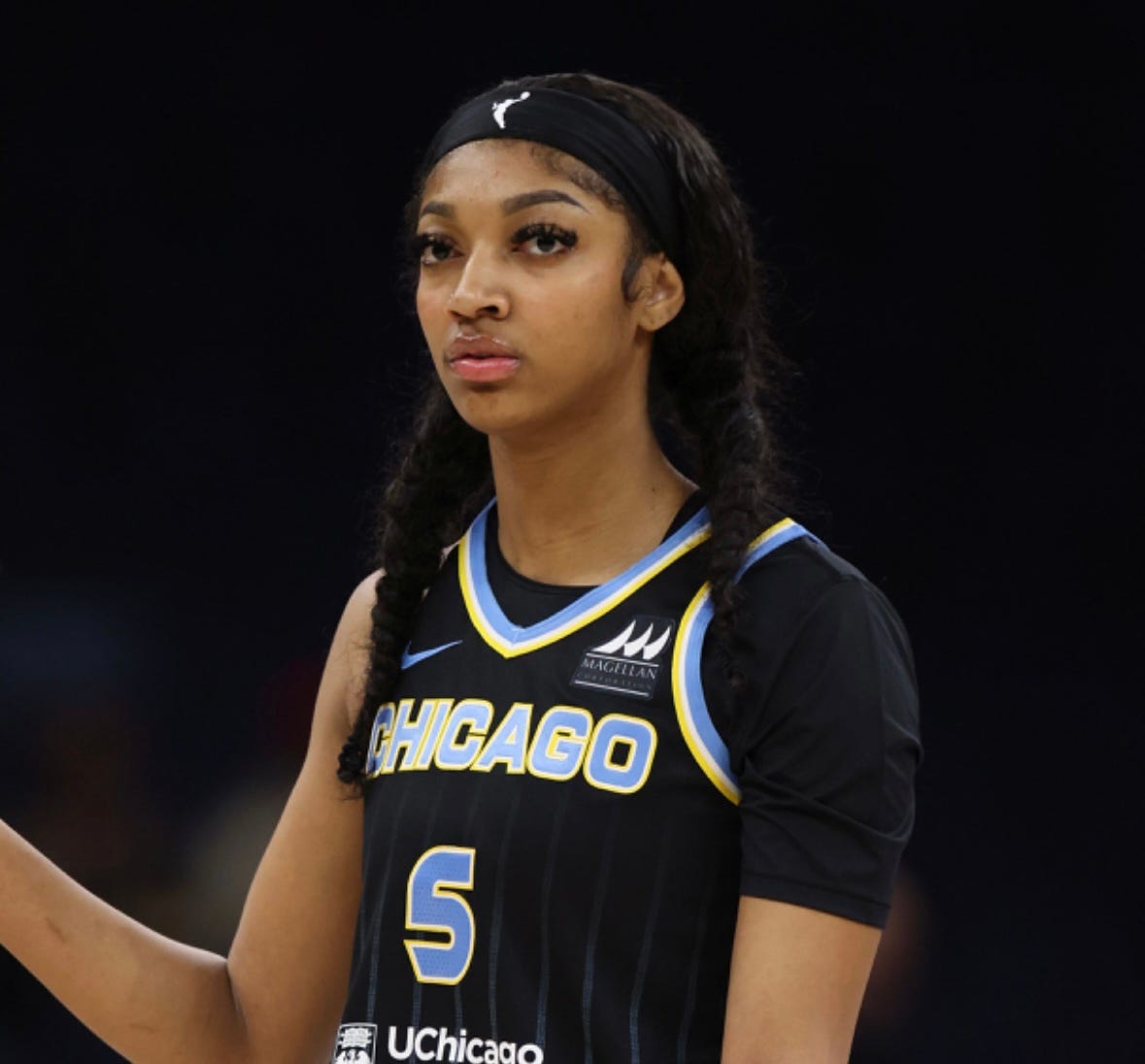
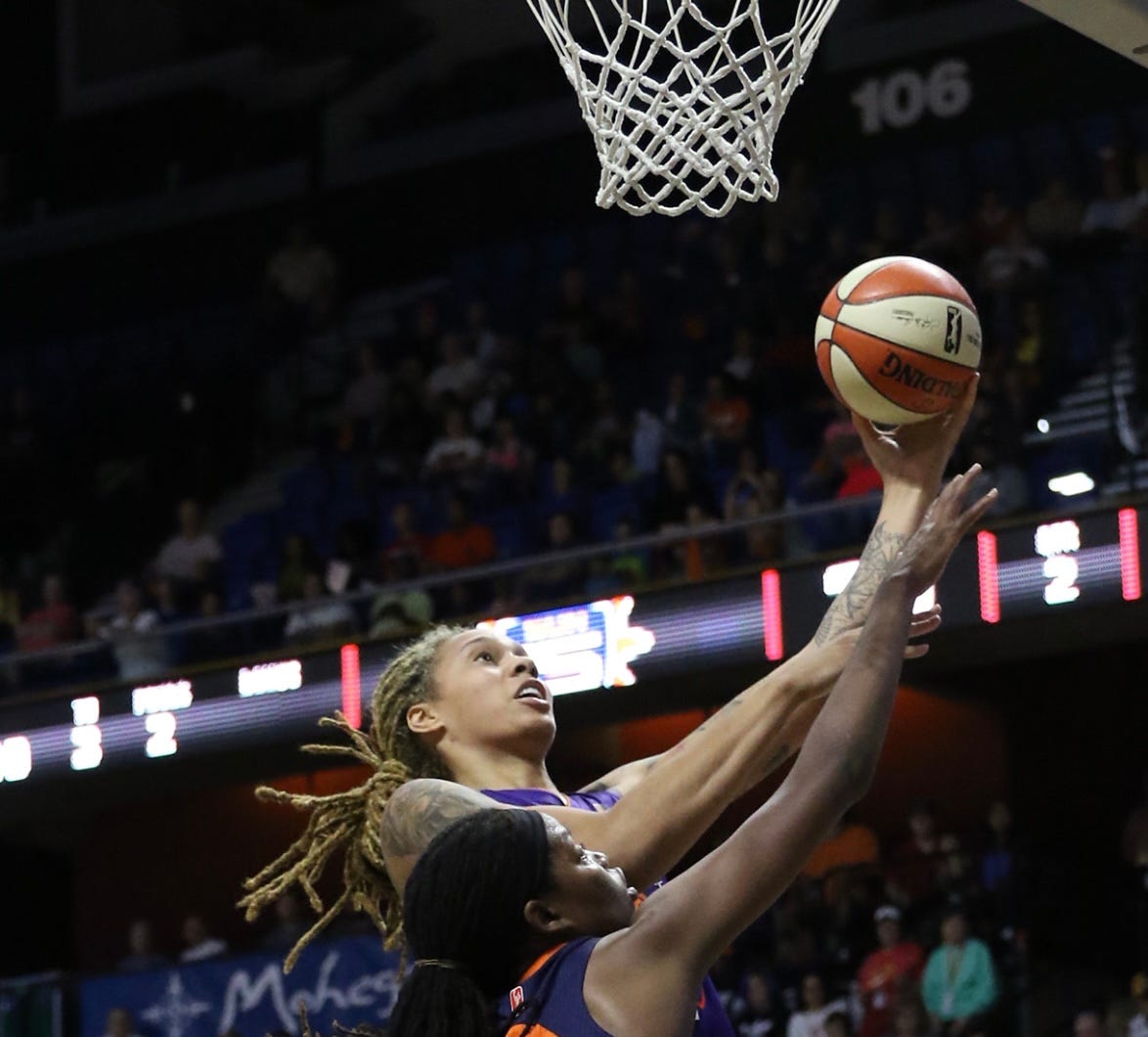
Some great insights in this piece Ron. After watching the lame final at Boston last night, the ladies have nowhere else to go but up...